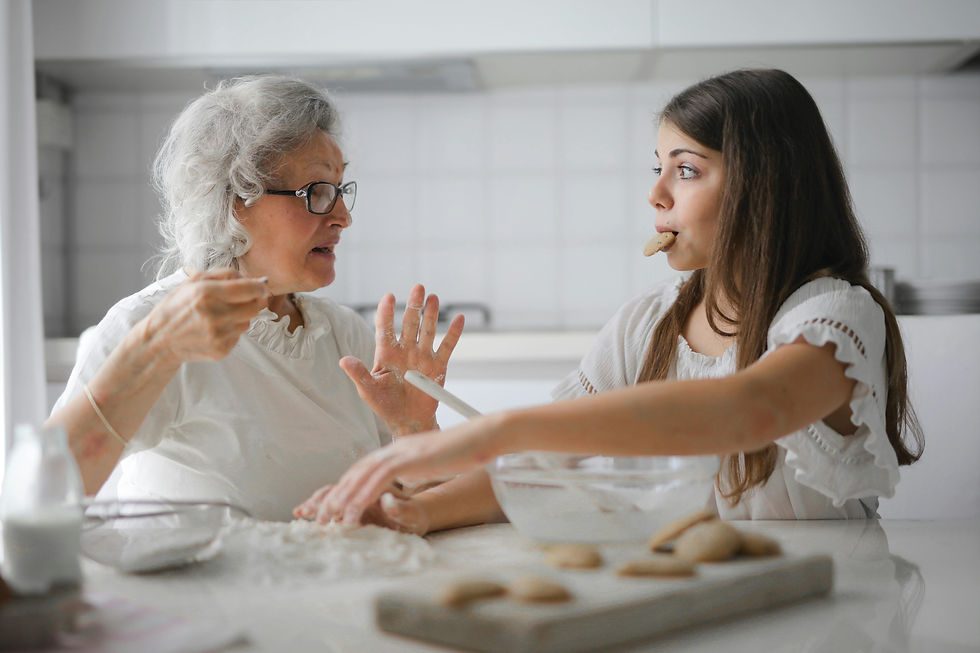Understanding Friendships From Your Grands’ Point of View
- Aug 9, 2022
- 2 min read
Updated: Oct 7, 2022
Understanding friendships from your Grands’ point of view requires us to take a step back and remember not only the age and development of the grandchild but also some of our own experiences with friends. Remember the drama of friendship at a young age? “She said she isn’t my friend anymore.” or “If I didn’t go along with what he wanted to do, he wasn’t going to be my friend.” Don’t downplay these common complaints from children. They represent their first efforts at relationships and socialization. We all go through it, feel the pain of rejection, and learn to overcome it as we mature and develop healthy relationship skills. We can help our Grands learn about friendship by offering understanding, guidance, and encouragement.

It helps us if we understand the stages of friending ability children experience as they grow. In preparing for this month’s content, I found an article on another blog that is a quick read and gives a great outline. As you read it, you’ll probably connect at many points as you remember learning to be a good friend.
As you read, consider how important it is that we learn to socialize in healthy ways. So many young people, and adults, are engrossed in tablets and phones that direct human interaction is suffering. It takes extra effort to pull our eyes up from the screens, really look at one another, and communicate. When we do, it’s often a breath of fresh air. It’s a welcome change from the frantic pace technology seems to set for us these days. For children, it’s an opportunity to learn to connect and be a friend.
Here are a couple of quick ways you can spend time with your Grands while teaching friendship skills:
Regularly ask about their friends and find out if they are making connections. If not, encourage them to try something new. Maybe join a club at school or try out for choir or a school play. Give them ideas on activities that require interaction.
For very young children, get creative with make-believe outings and adventures where you play the role of their best friend, new friend, or potential friend. As you imagine the adventure and talk through it, create scenarios that teach interactive skills. Sprinkle small challenges into the make-believe story and see how your Grand responds. Take the opportunity to praise and teach along the way.
Encourage friendship as a value by inviting their friend(s) along on some family activities. Proceed cautiously and make sure parents are all aware and permission has been given, of course. Seeing how your Grands interact with their peers can be a help to you as you encourage and teach. Our family has had some great experiences with tag-along friends.
Several children from the past remain now as adult family friends among two generations.
Friends play an important role throughout our lives. It’s important as you teach lessons and skills about friendship to understand those friendships from your Grands’ point of view. Enjoy the blog post we shared and be proactive in helping your Grands learn to be good friends.




Comments